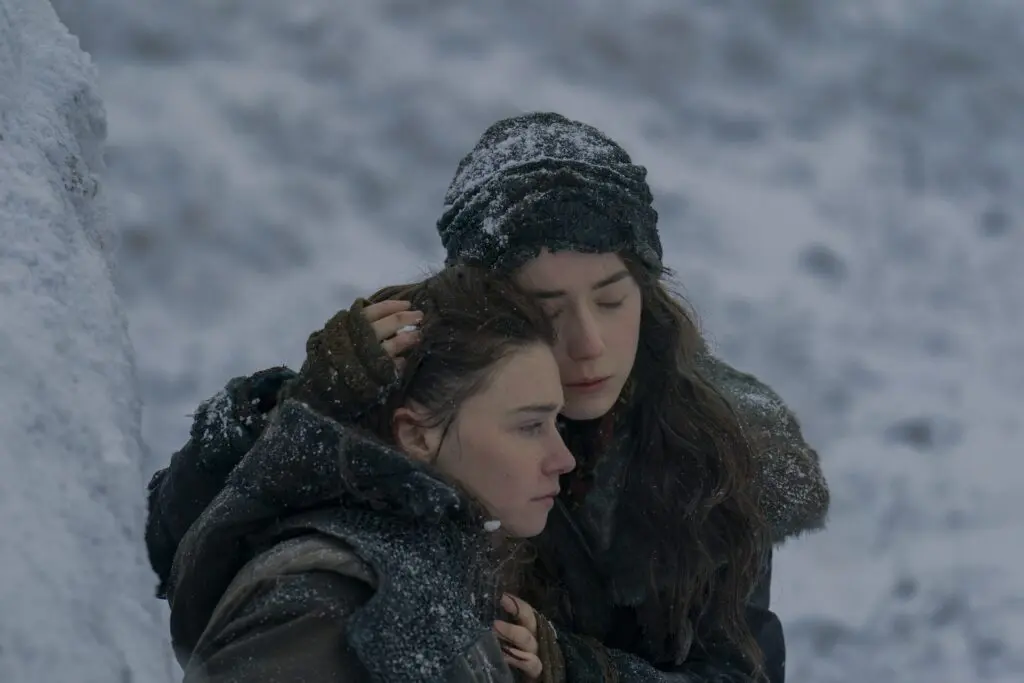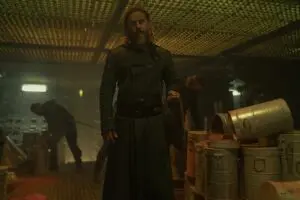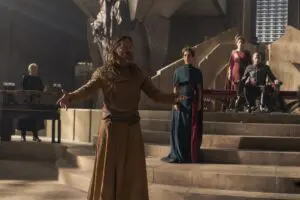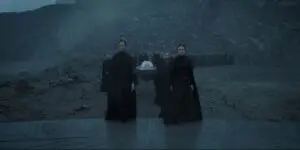Summary
Dune: Prophecy gets bogged down a little in Episode 3 with extended flashback sequences, but the revelations to inform the present day drama.
It had to happen eventually, and it finally does here in Episode 3 – Dune: Prophecy shows some weakness in its storytelling. The midpoint is a strange time to pull out an episode almost entirely dedicated to explanatory flashbacks, especially after things were really picking up. And despite being full of interesting information about House Harkonnen in general and Vayla and Tula specifically, “Sisterhood Above All” loses some of its dramatic oomph.
There are scenes set in the present, granted, but they’re largely here to interplay with the ones set in the past, so while the catty space witch double-crossing is at a premium, I nonetheless felt the brakes being squeezed. It’s a weird time to do that since the premiere had its fair share of this and didn’t really get moving until the end. That’s a lot of time – almost half of a six-episode season – thus far devoted to family drama and Sisterhood origin stories when there’s a dude cooking people with his mind right there.
Family Reunion
But no matter. Again, “Sisterhood Above All” does pick up from Desmond Hart dismissing Valya and Sister Theodosia from court, leaving them in a bit of a pickle. Valya is still determined to regain control of House Corrino, but she’s determined to do it herself, especially after Sister Mikaela informs her that Lila didn’t survive the Agony but managed to relay a message from Mother Superior Raquella – the rhyming couplet implying that Desmond is integral to a forthcoming reckoning.
So, after dispatching the other sisters back to their respective noble houses to continue pulling strings there, Valya and Theodosia head for a family reunion with Baron Harrow Harkonnen and Evgeny Harkonnen. Given that degree of family history, I guess we do need an hour-plus of explanatory flashbacks to understand how we got to this particular point.
Sister Act
Valya and Tula grew up on the cold planet of Lankiveil with their parents Sonia and Vergyl and their brother Griffin. The Harkonnen name is in some degree of disrepute thanks to Vorian Atreides having told the Landsraad a bunch of lies about the family, disparaging the name of Abulurd Harkonnen, and Valya would very much like to remedy this. What we’re seeing here is the nucleus of Valya’s internal conflict between responsibility to her family name and the Sisterhood at large, in case you haven’t noticed.
Griffin believes in Valya, thanks at least in part to her having once used the Voice to save him from drowning, but his efforts to help result in his death at Vorian’s hands, and she swears revenge in return. But she’s also sent to Wallack IX to join the Sisterhood, leaving Tula behind, so Dune: Prophecy Episode 3 sets out on its different flashback-within-a-flashback narrative tracts.
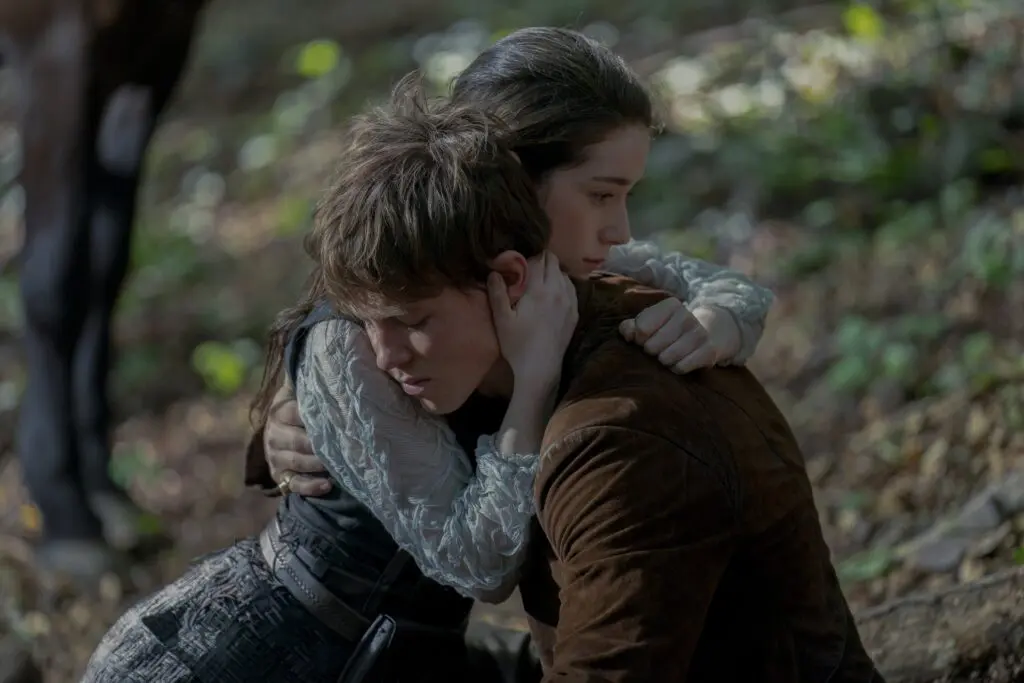
Emma Canning and Milo Callghan in Dune: Prophecy | Image via HBO
Valya and Dorotea’s Conflict Intertwines With Raquella’s Secret
On Wallach IX we see the crystallization of Valya’s internal Harkonnen-versus-the-world conflict through her feud with Sister Dorotea, who clashes with Valya pretty much immediately. Membership in the Sisterhood involves forsaking all familial bonds and putting the Sisterhood on a pedestal – hence its title, “Sisterhood Above All” – and this is something that Valya struggles with. In a test involving standing in the lashing rain and meditating until those past ties have been forsaken, Valya remains out there all alone, until Mother Superior Raquella intervenes.
The conflict between Valya and Dorotea isn’t just a rivalry; it’s symptomatic of internal disagreements within the Sisterhood. Dorotea is a Butlerian, the Duniverse’s staunchly anti-technology faction, and this informs her beliefs about the Sisterhood’s purpose as a way to steer humanity toward its “better nature”. Valya sees truth and lies as simple tools, to be applied like all tools to performing a specific task. It’s idealism versus pragmatism, in a sense. Crucially, Raquella is attracted to Valya because she has secretly constructed her life’s great work, the DNA compendium of all the galaxy’s great houses, with help from computers, meaning that between Valya and Dorotea, the two most promising sisters, she kind of has to side with Valya to preserve her secret.
Both Valya and Tula are selected to undergo the Agony, but Valya initially doesn’t go through with it. She has something else pulling her away, and Raquella reveals she received a coded message from Lankiveil that Valya will need to address. She does give her a vial of the Rossak poison, though, the pre-spice initializer of the Agony, and tells her that unless she’s going to return as a Reverend Mother, she needn’t bother returning at all.
Tula’s Mission
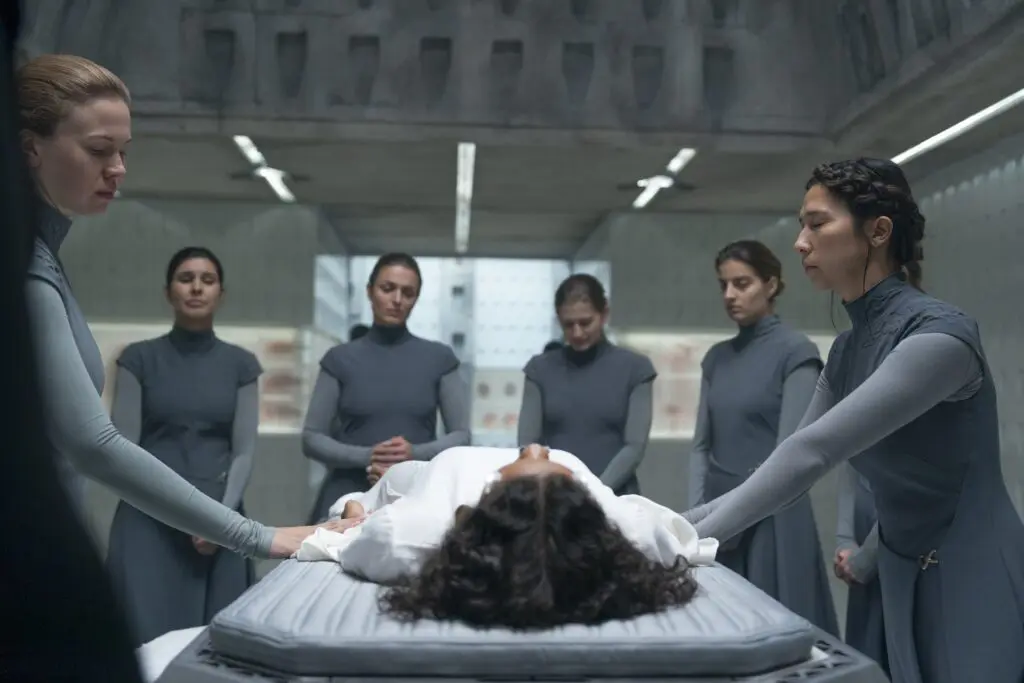
Chloe Lea and Aoife Hinds In Dune: Prophecy | Image via HBO
Tula has been busy in Valya’s absence. What seems like an extended stay with the family of her boyfriend, Orry, turns out to be a revenge mission that she’s obviously conflicted about but nonetheless determined to see through.
It isn’t immediately obvious what’s going on here. Tula’s going by a different surname, Vale, and Orry’s family all seem pretty reasonable. You’d be forgiven for thinking that she’d simply moved on, that the distance she experienced from her parents in Valya’s absence left her adrift until she found shelter here. But suspicions are piqued when the men of Orry’s family all shout their family name, and we hear that it’s Atreides.
In a crisis of conscience, Tula tries to sneak away, but Orry catches her. This poor romantic really does believe that they can carve out their own future together, and don’t have to be bound by things that happened over a century ago. What he doesn’t realize is that his entire family is dead outside, and he’s next on the chopping block. Letting bygones be bygones is easier said than done, especially when it was an Atreides that killed Griffin.
The massacre has a lone survivor, Albert, who runs away. Its savagery and completeness shocks even Valya when she returns. Predictably, it’s Valya who is blamed for it, and after lashing out with the Voice and almost compelling her mother to take her own life, she slopes off to take the Rossak poison and become a Reverend Mother. She also takes Tula with her back to the Sisterhood.
Tula’s Secret
Towards the end, Dune: Prophecy Episode 3 finally gives us a more complete picture of how these flashbacks inform what we’re seeing. This particularly relates to the relationship between Valya and Tula, but it also ties into what we’ve seen of Raquella and Lila’s fate in the previous episode.
Speaking of the latter, Tula is having difficulty letting Lila go. She’s keeping her in a vegetative state and has forbidden her life support to be turned off. Eventually, she seems to come around to the idea, but in truth, she has simply hit on a different one, inspired by the spice tea that Sister Avila brings her.
As it turns out, despite all the commendations she’s getting for letting Lila go, Tula has done no such thing. She’s keeping her in the tunnels that Raquella showed young Valya, tended to by a forbidden artificial intelligence named Anirul. Tula’s theory is that if the right amount of spice is used, Lila’s mind can be repaired. However, her use of a thinking machine for this purpose wouldn’t go down very well, with Valya or anyone else. Nevertheless, she insists she’s in charge and that the procedure takes place.
RELATED:

